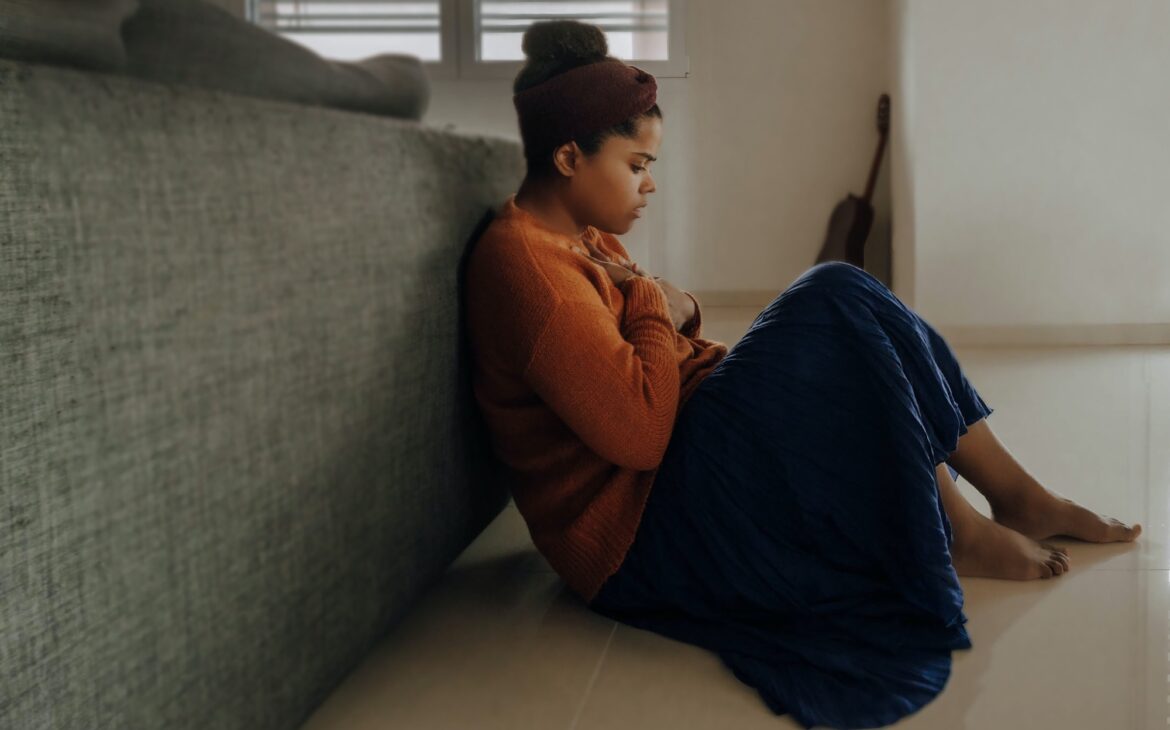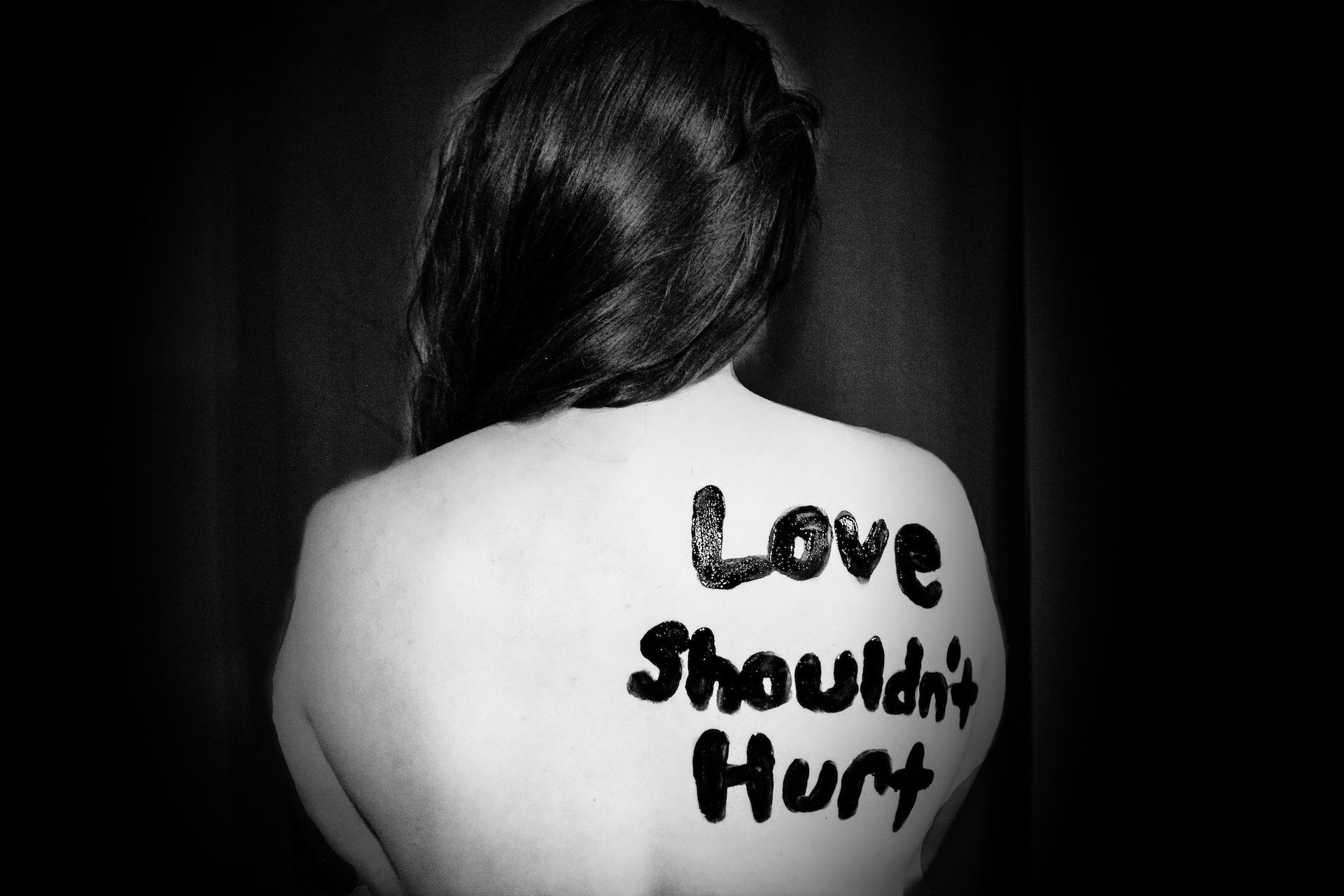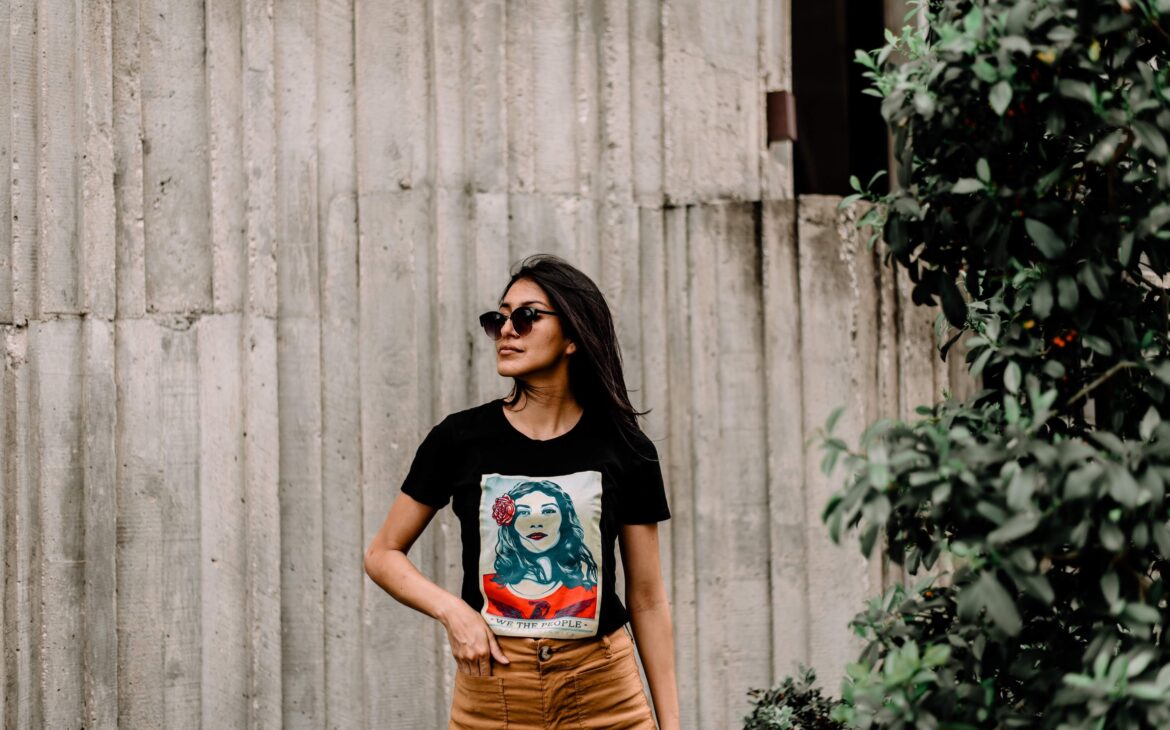My Experience As a Latina Growing Up Around Machismo and Domestic Violence
I remember seeing my dad watching soccer every weekend when I was a child. When I became a teenager I made my school’s soccer team. I thought my dad would be proud of me.
I got home from practice dressed in my soccer gear and I saw my dad standing outside. He looked at me and then looked away. He pretended I wasn’t there. I felt confused. I was playing a sport that he enjoyed for so many years but instead of being proud of me, he looked disappointed. I felt sad and ashamed.
In his eyes, women were not supposed to play soccer, because it was a man’s sport. In fact, women aren’t supposed to do many things. Instead, they should be submissive, clean the home, do what the man says, and tolerate abuse.

This is the home I grew up in. I have memories of watching my mom being physically, emotionally, and mentally abused by my dad and me intervening to make him stop when I was only two years old. I grew up being groomed as a five-year-old to be submissive and told that my place was in the kitchen and cleaning the house because I was a girl. My father demanded that I cook for him when I was a teenager because that was a “girl’s job.” I was told I wasn’t going to get far in life because I was a woman.
My living situation got to the point where I could no longer live around him anymore. I briefly lived in a foster home to get away from the abuse he inflicted on me. There was a positive result from this because it was this event that made the abuse stop. Suddenly, I had the police protecting me from him. The government told him that if he didn’t quit abusing his family, he would be sent to jail. It was the first time anyone stood up to him. It was the first time anyone stood up for me.
Being treated poorly because I was a girl made me feel so mad. I learned to disconnect from the natural gifts that come with being a woman so I could survive my dad – and men in general. I learned to be tough. I forced myself to learn how to stand up to men. I learned that I had to prove them wrong. The first time I proved my family – especially my dad – wrong was when I became the first person in my family to graduate from college.
I never realized how growing up within a machismo – toxic masculinity – culture impacted my life until I started to heal from my traumas. Let me provide some background on what machismo means.

What is Machismo and Domestic Violence Statistics in the Latino Community
Machismo can be defined as, “a strong or exaggerated sense of manliness; an assumptive attitude that virility, courage, strength, and entitlement to dominate are attributes or concomitants of masculinity.”
Much of the violence within our community can be attributed to this concept of machismo.
“A woman is a victim of femicide in Latin America every two hours,” according to research collected by Woodrow Wilson International Center for Scholars, a think tank based in Washington, D.C.
Machismo in the Latino community is alive and growing. This is something that is taught to boys and girls from a young age and normalized in our community for hundreds of years.
In fact, machismo remains so deeply embedded in our culture that, “violence against women has surged in Latin America; Mexico, in particular, has seen an unprecedented amount of femicides and crimes against women. Violent offenses against women have increased by 7.7% since the beginning of 2020,” according to research collected by Achona, the student-run newspaper of the Academy of the Holy Names, based in Tampa, Fla.

The 7 Ways Machismo and Domestic Violence Affects Latina Mental Health
Here are some ways that living with machismo impacted me as a Latina – as I share some valuable insights on how machismo impacts our community’s mental health. These insights are based on my healing journey and don’t represent the experience of every Latina. However, I encourage you to see if any of these observations resonate with you:
- We feel emotionally and physically unsafe in the world: Trauma gets stored in our minds and bodies even if we’re unaware of it. Exposure to violence as children causes us to live in a constant state of fear. Our brains can’t develop naturally as a result. Our bodies become accustomed to living in fear, which creates a baseline. In order to protect ourselves, we develop coping mechanisms where we are always on edge.
- We feel ashamed of being women: For those of us who grew up in an abusive environment where we saw our mothers being treated poorly, we develop internal shame. We rely on our parents to help us regulate our emotions. But in an abusive environment, our self-esteem isn’t able to safely develop, so we can get stuck in a cycle of self-hate that makes it difficult to love ourselves and build a secure sense of self.
- It makes it difficult to trust men: We may develop trust issues with men because the important men in our lives – our fathers – were toxic. The opposite could also happen where we trust too easily. Many times we gravitate towards toxic men because that’s what’s familiar to us. This continues the cycle of abuse.
- We feel a loss of not growing up with the support and protection we needed from our fathers: Fathers play an important role in teaching their daughters self-worth and helping them to feel safe in the world. The challenge of feeling safe, loved, and relating to men in healthy ways is complicated when we grow up with fathers who didn’t play this role in our lives. The result of this lack of care is we become vulnerable to narcissistic men. These narcissists will “love bomb” to manipulate and control us. We may trust these types of men blindly if we aren’t used to this kind of attention because this is the attention we needed from our own fathers as children.
- We repeat the toxic cycle of abuse: Living with abusive people becomes normal since we grew up surrounded by domestic violence. We may end up in toxic relationships with toxic men because we aren’t able to recognize the red flags.
- We can develop extreme masculine traits: Growing up with domestic violence forced some of us to develop extremely masculine traits as a coping mechanism. We became tough as a protective mechanism to survive. As a result, we have difficulty putting down our guard around men and trusting they’ll be there for us.
- We can develop health issues: Growing up with constant fear and stress keeps our bodies and minds on edge. Our minds and bodies get affected by this as we age. There are many health issues we may develop, including anxiety, depression, and burnout, among other potential health issues due to these stressors.
These are some of the impacts that living with machismo can have on Latinas. There are a lot more! It might feel challenging to take this in but it’s something we have to examine closely if we want our community to heal and grow.

I encourage you to take a moment to understand how exposure to domestic violence and machismo can leave lasting – but invisible – scars on your children, especially if you’re a Latina living with an abusive partner. As we grow older few of us are courageous enough to do the work to face machismo head-on and heal from its effects. These impacts might last a lifetime if your kids don’t get the right support from a young age but you have the power and the tools if you’re willing to walk down that path.
Even if you don’t have children, but you grew up around machismo or you’re with a toxic partner, I hope this article will help you recognize the red flags that machismo and domestic violence have had on you. You can start to take control back and heal from your past if you’re ready to make different choices and begin this healing journey. You deserve it!
Article originally published in Epifania Magazine on April 3, 2023






0 Comments